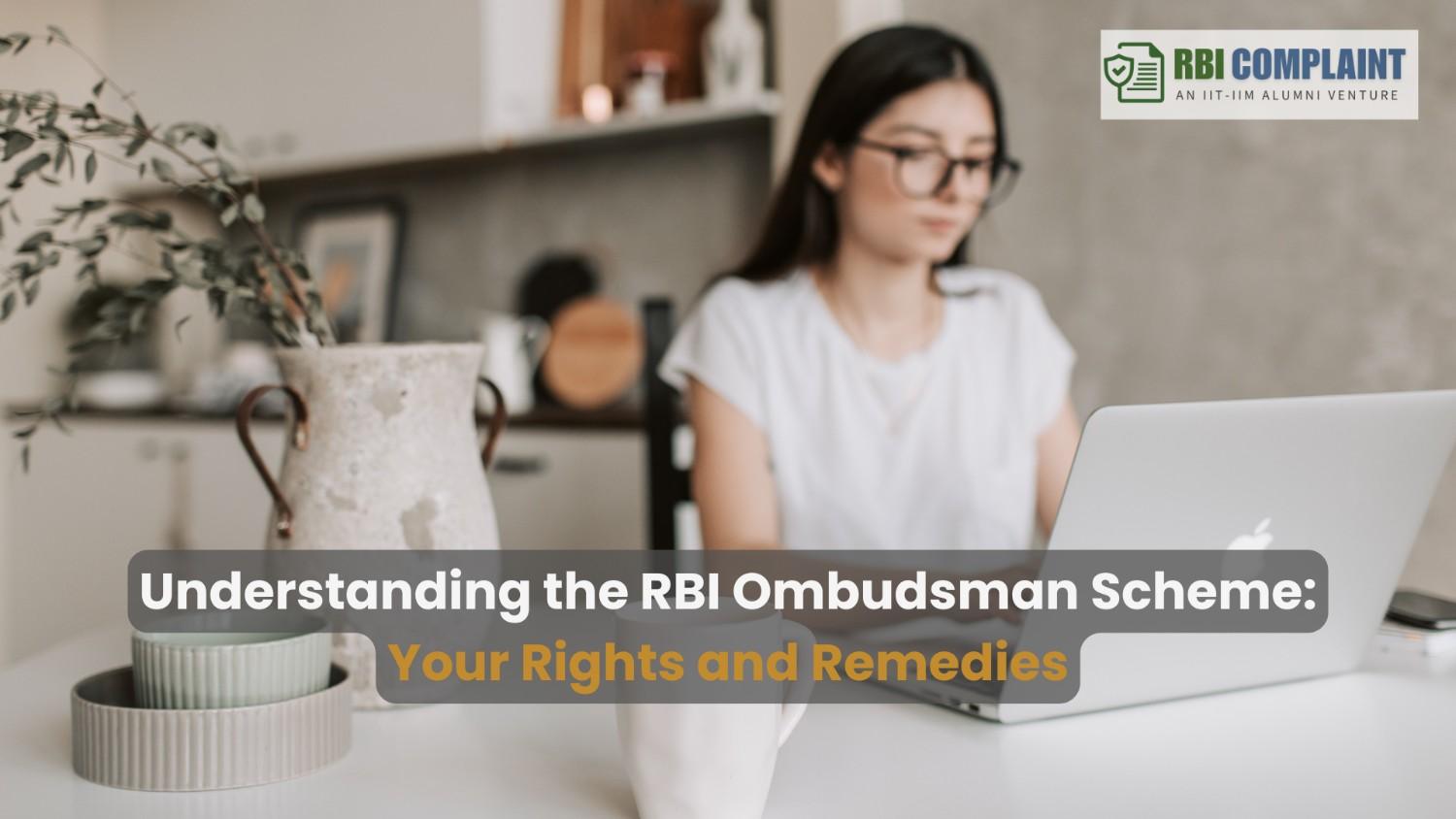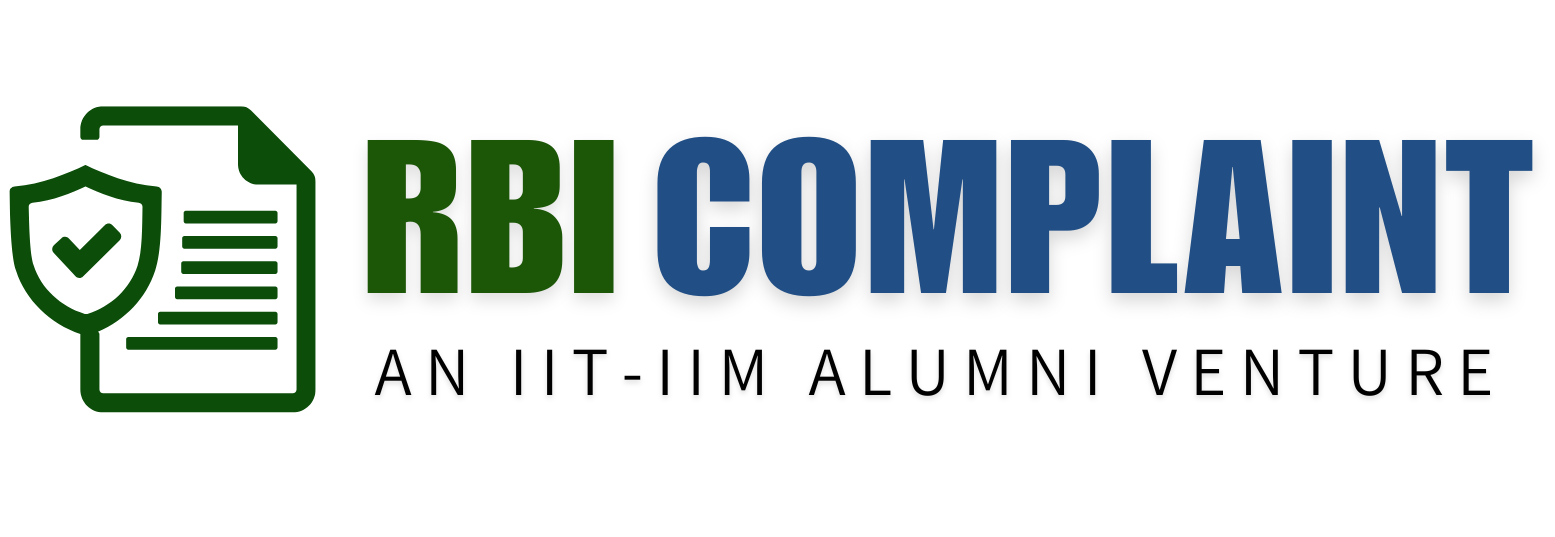· Dispute Resolution · 6 min read
Understanding the RBI Ombudsman Scheme: Your Rights and Remedies
Explore your rights under the RBI Ombudsman Scheme. Learn about remedies for banking complaints, fraud, and grievance redressal. Know your options today!

Dealing with financial issues can be daunting, especially when you believe you’ve been wronged by a bank. Luckily, the RBI Ombudsman Scheme serves as a powerful tool to help customers seek justice. But what exactly is this scheme, and how does it work? In this article, we’ll break down everything you need to know about the RBI Ombudsman Scheme, including who can use it, how to file a complaint, and what remedies are available to protect your rights.
What is the RBI Ombudsman Scheme?
The RBI Ombudsman Scheme is a formal grievance redressal system established by the Reserve Bank of India (RBI). The aim is to provide customers with a swift, effective, and cost-free mechanism to resolve their disputes with banks. This scheme initially started in 1995 and has evolved over the years to address more complex banking issues, including digital transactions and unauthorized withdrawals.
Objectives of the Scheme
The primary goal of the scheme is to resolve complaints in a timely and transparent manner, promoting fairness in banking practices. It also works to build trust between banks and consumers, ensuring that customers have a structured path for addressing their concerns.
Who Can File a Complaint?
The Ombudsman Scheme is designed for the common man. Whether you’re an individual or a small business owner, if you’ve faced issues with banking services, you’re eligible to file a complaint.
Eligibility Criteria
To be eligible, you must have first approached the concerned bank with your issue. If the bank does not respond within 30 days, or if you’re unsatisfied with their response, you can take the complaint to the Ombudsman.
Types of Complaints Addressed
The scheme addresses a wide variety of banking-related grievances. This includes delays in loan processing, unauthorized transactions, and even issues with internet banking services.
Banks Covered Under the Scheme
Almost all types of banks come under the RBI Ombudsman Scheme, ensuring that customers across the country are protected.
List of Institutions Included
From nationalized banks to private sector banks, and even regional rural banks, the scheme ensures a wide net of coverage. Co-operative banks are also included, although they may have a slightly different complaint-handling process.
How Does the RBI Ombudsman Scheme Work?
The process is fairly straightforward. First, you need to file a complaint with the bank in question. If they fail to resolve the issue within 30 days, you can then approach the Ombudsman.
Process Flow of a Complaint
Once you lodge a complaint with the Ombudsman, they assess whether it falls under their jurisdiction. If accepted, the Ombudsman will take up the issue with the bank and try to mediate a settlement.
Time Frames and Responses
Typically, cases are resolved within 60 days, although more complex matters may take longer. You’re kept informed at every stage of the process.
Filing a Complaint: Step-by-Step Guide
Filing a complaint isn’t complicated, but there are a few important steps you should follow to ensure your issue is heard.
Initial Steps Before Approaching the Ombudsman
Before heading to the Ombudsman, try to resolve the issue directly with your bank. Give them a reasonable amount of time (30 days) to respond.
Documents and Information Required
You’ll need to provide your account details, relevant transaction records, and a written explanation of the problem. Having clear documentation helps speed up the process.
Digital Submission: The CMS Portal
In today’s digital age, filing a complaint is easier than ever thanks to the RBI’s Complaint Management System (CMS) Portal.
Using the Online Portal
This online platform allows you to submit your complaint from the comfort of your home. It’s user-friendly and available in multiple languages, making it accessible for people across India.
Benefits of Digital Submissions
Not only is it faster, but using the CMS Portal also ensures greater transparency. You can track the progress of your complaint in real time.
Grounds for Complaints
What kind of issues can you bring to the Ombudsman? Let’s take a look at some of the common complaints addressed by the scheme.
Common Complaints Addressed by the Scheme
Unauthorized withdrawals or transactions
Delays in the issuance of loans
Issues with internet banking services
Excessive charges for banking services
Specific Examples and Case Studies
For example, imagine you were charged excessively for a failed ATM transaction. Under this scheme, you could file a complaint and potentially receive compensation for the error.
Rights of Complainants
As a consumer, you have several rights when filing a complaint through the Ombudsman Scheme.
Legal Protection and Assurance
The RBI ensures that your complaint will be handled fairly and without bias. You’re entitled to a written explanation of any decision made regarding your case.
Transparency in Complaint Handling
At every step, you’ll be kept in the loop. This ensures you’re not left in the dark about your complaint’s status.
Possible Remedies Under the Scheme
If your complaint is successful, several remedies may be offered to you.
Compensation and Redress Options
You could receive monetary compensation for any losses suffered, such as unauthorized transactions. Additionally, the bank may be ordered to refund excessive charges.
Other Remedial Measures
Beyond financial compensation, the Ombudsman can direct banks to improve their processes to prevent similar issues in the future.
Time Limits for Filing Complaints
Like any legal or formal process, there are time limits for submitting complaints.
Deadlines for Different Types of Issues
You must file your complaint within a year of first bringing it to the bank. If you wait too long, you may lose your chance to resolve the issue through the Ombudsman.
What Happens If Deadlines Are Missed?
If you miss the deadline, the Ombudsman might reject your complaint outright, making it essential to act swiftly.
Ombudsman’s Role and Powers
The Ombudsman holds considerable authority in resolving banking issues.
Authority of the Ombudsman
The Ombudsman has the power to mediate disputes, pass decisions, and order banks to compensate customers.
Scope of Decisions and Enforcement
Their decisions are binding, although in some cases, either party may appeal the decision to higher authorities.
Appealing the Decision of the Ombudsman
If you’re unsatisfied with the outcome, you do have options for appeal.
Process to Appeal the Verdict
You can escalate the matter to the Deputy Governor of the RBI or even file a case in a consumer court if necessary.
Success Stories and Impact of the Scheme
Over the years, the RBI Ombudsman Scheme has resolved countless disputes, making banking safer for millions.
Notable Cases Resolved
From unauthorized credit card charges to unfair loan rejections, many customers have found relief thanks to this scheme.
Positive Impact on Banking Transparency
The scheme has also pushed banks to be more transparent and accountable, improving the overall quality of financial services in India.
Conclusion
The RBI Ombudsman Scheme is an invaluable resource for any customer who feels they’ve been wronged by their bank. Whether you’re dealing with unauthorized charges, delayed payments, or poor service, this scheme offers a clear and effective path to resolving your issues. By understanding your rights and knowing how to file a complaint, you can ensure that your voice is heard, and justice is served.



